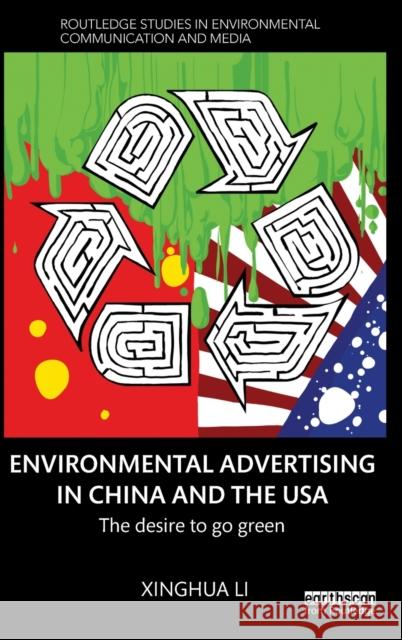Environmental Advertising in China and the USA: The Desire to Go Green » książka
Environmental Advertising in China and the USA: The Desire to Go Green
ISBN-13: 9780415744133 / Angielski / Twarda / 2016 / 158 str.
Environmental Advertising in China and the USA: The Desire to Go Green
ISBN-13: 9780415744133 / Angielski / Twarda / 2016 / 158 str.
(netto: 746,32 VAT: 5%)
Najniższa cena z 30 dni: 730,42
ok. 16-18 dni roboczych.
Darmowa dostawa!
Since the late 1980s, green consumerism has been hailed in the West as an efficient solution to environmental problems. However, Chinese consumers have been slow to warm up to eco-friendly products. Consumers prefer SUVs to hybrid cars, health supplements and snake oil medicines to organic foods and eco-fashion is still secluded in high-end designer studios. These choices contradict the findings of many sustainable lifestyle surveys that claim to register a rising desire for green products among the Chinese.
This book examines the psycho-cultural differences that disrupt the translation of "eco-friendly" appeals to China by analyzing environmental advertising. It explores the different notions of "green," the structures of desire that underlies the advertisements, and how they are shaped by ideological, cultural, and historical differences. Rather than arguing the superiority of the American or Chinese version of green consumerism, the book interrogates the role of advertising in the global spread of Western ideologies and explores the possibilities for consumers to resist transnational corporate hegemony in the green movement.
This book fills an important gap in the critical scholarship on green marketing and should be of interest to students and scholars of environment studies, green advertising and marketing, environmental communication and media studies, China studies and environmental sociology, ethics and cultural studies.











